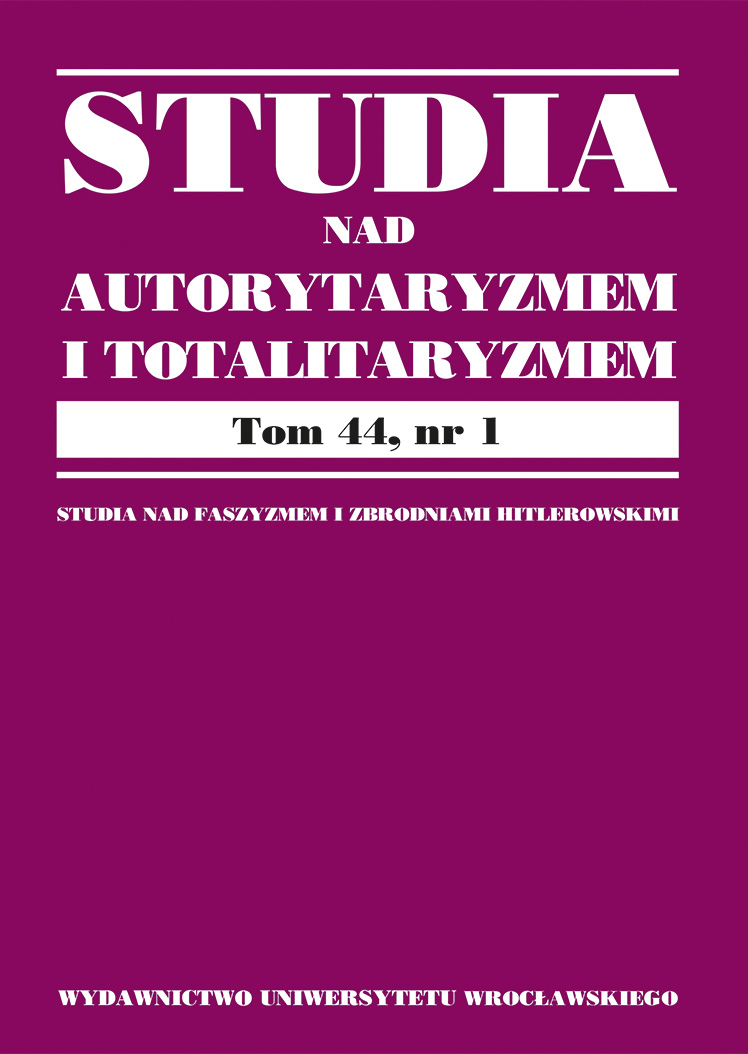

Artykuły

The decline of the democratic Weimar Republic and NSDAP’s rise to power in 1933 caused a huge political uproar, especially among European socialists and social democrats. For many decades German SPD was a role-model for other socialist parties. The German working class was also perceived as the best organized and the most politically educated in all of Europe. Therefore, as Gerd-Reiner Horn noticed in his path-breaking study, the period of about 40 months after the creation of Hitler’s cabinet was a time of extremely intensive (and perhaps most passionate in the interwar period) discussion on strategy and political practice of the European socialist movement. In the following article, the Polish part of this debate is presented in detail. I examine official resolutions and ideological statements of the Polish Socialist Party (PPS), polemic pamphlets, the wide range of comments and political analyses published in socialist press, police reports, etc., in order to address three main issues: 1. in what way the Nazi Party’s rise to power catalyzed the process of radicalization among Polish socialists; 2. what the connection is between socialists’ opinion on the social basis of the German fascist movement and the evolution of their political strategy; 3. to what extent their diagnoses regarding the social basis of fascist movements in general determined their views on the possible evolution of the Nazi regime. I argue that the tragedy of SPD made Polish socialists more sensitive to the role of emotions in political mobilization and urged them to reevaluate some of their previous propaganda techniques. According to the majority of acclaimed socialist intellectuals, fascism was objectively a procapitalist movement, the social basis of which was composed of pauperized and disorientated “middle strata” (e.g. shopkeepers, clerks, artisans, peasants, unemployed youth, etc.). In orthodox Marxism these groups were perceived as declining and deprived of genuine historical agency. But the Nazi rise to power showed that they have immense political potential and their support may be decisive for the result of the clash between socialism and fascism. Thus, the question of how to mobilize the majority of the “middle strata” in favor of socialism became a crucial part of debates among Polish socialists in the mid-1930s. As I argue, different answers for this crucial question determined profound tactical differences and contributed to harsh arguments on PPS’s politics.